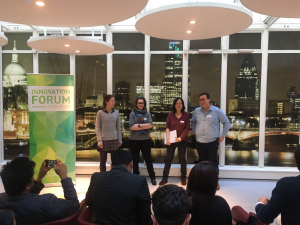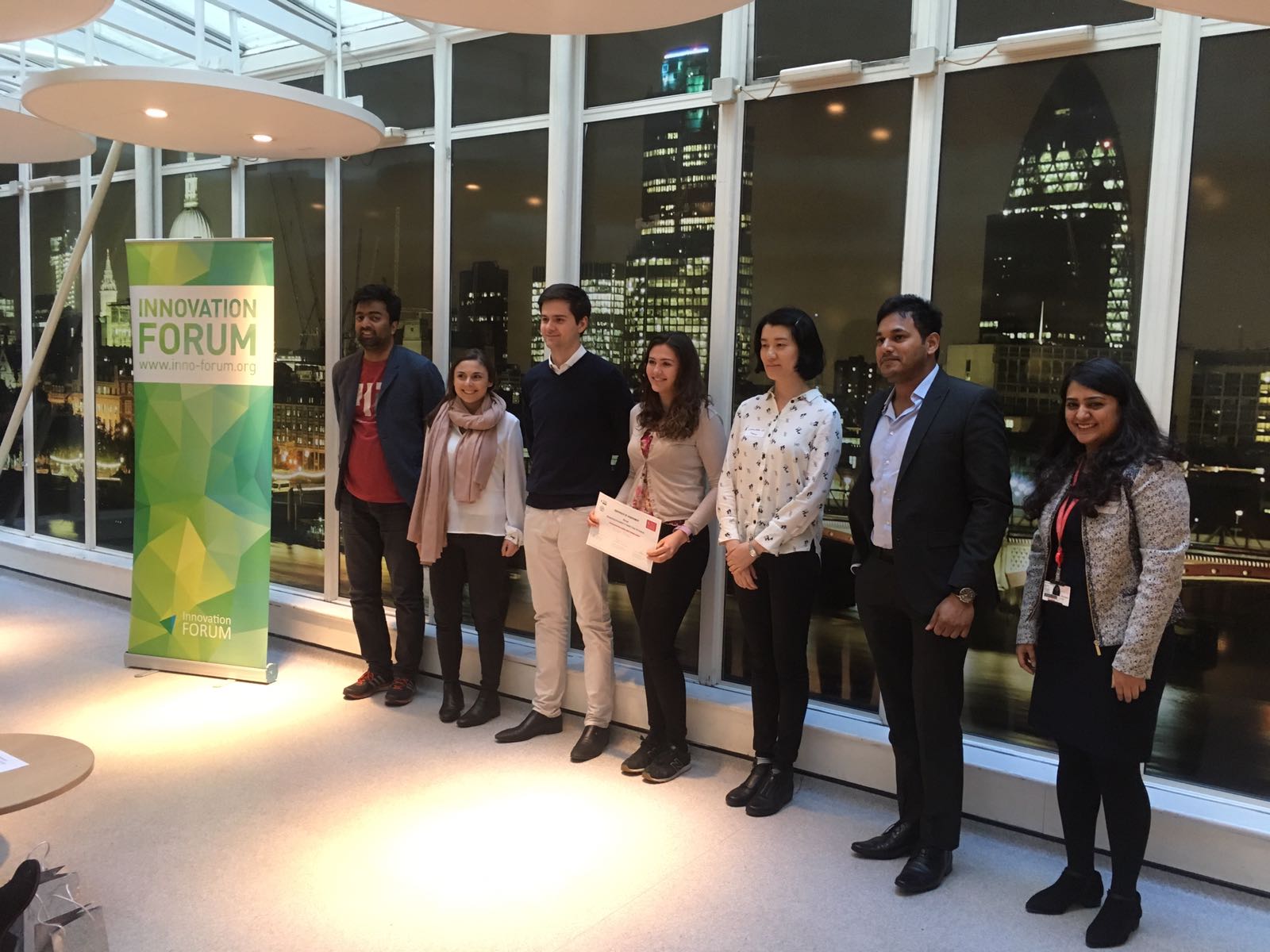Branch
Select your branch
Advancing Innovation in Healthcare at King’s College London
On 25th March, Innovation Forum KCL, alongside KCL’s Entrepreneurship Institute and Health & Life Sciences Enterprise Committee, hosted the Advancing Innovation in Healthcare: Idea Workshop at the KCL’s Waterloo Campus at KCL’s Waterloo Campus, sponsored by Founders Factory. The whole-day workshop was attended by 21 participants. The participants were organised into five teams that then developed ideas and solutions to challenges in health. After developing their ideas, each team received 15 minutes of expert advice from Amanda Dickens (PwC), Ashni Sedani (GSK), Javad Golzari (FSC), Ryan McCully (QuintilesS) and Yamini Bakiri (Windrose Consulting). The teams refined their ideas further and prepare a three-minute pitch.  The day concluded with pitches and Q&A to judges from experts in health industry, Anish Mohammed (Advisor for Adjoint) and Manish Burman (GSK). Prizes were awarded to Shannon Doyle, Raquel Fernández Dacosta and Jingjing Li in team Smart Flora for best idea and pitch.
The day concluded with pitches and Q&A to judges from experts in health industry, Anish Mohammed (Advisor for Adjoint) and Manish Burman (GSK). Prizes were awarded to Shannon Doyle, Raquel Fernández Dacosta and Jingjing Li in team Smart Flora for best idea and pitch.
The teams were Glucomon, Smart Flora, Cat Therapy, Opticell and GenoPrint, each with unique medical and biotechnology solutions.
First Glucomon pitched their product of a pre-meal supplement to control satiety in children with obesity. The supplement would contain natural ingredients, fibres, gum and antioxidants that would make children feel fuller before meals. Alongside the supplement, Glucomon proposed an educational platform in schools for children to learn about eating healthily, nutrition, and tackling social stigma of obesity. They stressed the purpose of the supplement was not to replace eating, but as an aid to cut down unhealthy foods.
The next team was Smart Flora (winning team), a company that would create a personalised dietary plan for individuals based on their unique gut microbiota profile. The gut’s microbiota, or “flora”, is thought to be heavily responsible for inflammatory gut disorders, such as irritable bowel syndrome. By changing a person’s diet, it would be possible to alter their microbiota, and reduce symptoms of an inflammation. The dietary plan would be generated from a predictive machine-learnt model based on their microbiota profile. They suggest that the microbiota profile could be integrated with other biometrics, such as blood samples, to produce more precise predictive models.

Cat Therapy then presented their idea of providing cats in hospital wards and care homes to provide wellbeing and happiness for patients and residents, particularly those with depressive disorders.
Team Opticell proposed a method of combatting spinal cord injury using neurons that could be activated by optogenetics. They argue that the cost of developing and implementing this therapy would be less than the high costs of looking after individuals with spinal cord injury.
Last but not least, GenoPrint formulated a method of merging single-cell genomic and functional screening data to test the effectiveness of drugs. This would be done by generating induced pluripotent stem cells from stem cells (taken from different people that vary genetically), differentiating these pluripotent stem cells to cardiomyocytes, and testing anti-arrhythmia drugs on these cardiomyocytes by genome sequencing and functional assays. This solution could provide insights for pharma companies on whether these drugs could be more effective or harmful to certain groups of people with genetic risk factors. This could help better clinical trial design and bypass the need for animal testing.
The workshop was well received by participants, especially on the range of experts and the relaxed environment to develop their ideas.
“There are not many other events, especially with this level of intimacy, that give you access to such a high level of experts from such massive companies.” – Nasser S, UCL MEng, Participant
The experts and judges were also impressed by the amount of creativity and development of understanding from participants as the day progressed.
“Some teams started off with really raw ideas, but by the time they were pitching, they had clearly developed an understanding of all the layers of consideration and planning when coming up with an idea. It was great to see how the ideas varied – lots of creativity.” – Ashni S, GlaxoSmithKline Senior Scientist, Expert


